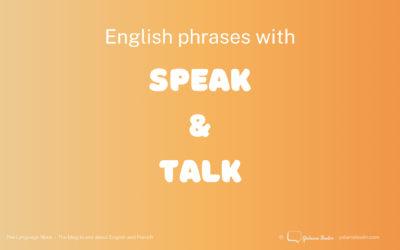As we all know, a conversation is not only made of clear-cut sentences, questions and answers. When someone is speaking, you also need to show that you are listening and interested in what they are saying. This is how you keep the conversation going.
An easy way to do so in English, is to use short questions. These questions are not there to ask for new information but really to show interest and take part in the conversation.
Let’s look at some examples:
- It’s cold here today. → Is it?
- I really like this song. → Do you?
- Steve is going to cook dinner tonight. → Is he?
- My friends arrived early. → Did they?
- I knocked on my sister’s door, but she wasn’t home. → Wasn’t she?
- We have already moved back to Scotland. → Have you?
What can we notice?
- If the sentence you are responding to is positive, the short question should be positive, too. Likewise, if the sentence you are responding to is negative, the short question should be negative, too.
- When the subject is not already a pronoun, you need to replace it with the relevant pronoun. In the examples above, Steve is replaced with he in the short question, my friends is replaced with they, my sister is replaced with she.
- When making a short question, always use the same tense as the sentence you are responding to.
- If the sentence is built with an auxiliary verb and/or a modal verb, use that verb in your short question.
In a way, you could say that you make short questions a bit like you make tag questions, except that you do not need to switch from positive to negative forms or vice versa.
Here you are! You now know how to keep a conversation going and what a short question is used for. Congratulations! 🙂
Now, how about trying to do the following exercise? You can try it as many times as you like. What’s your score? Can you improve it?





0 Comments